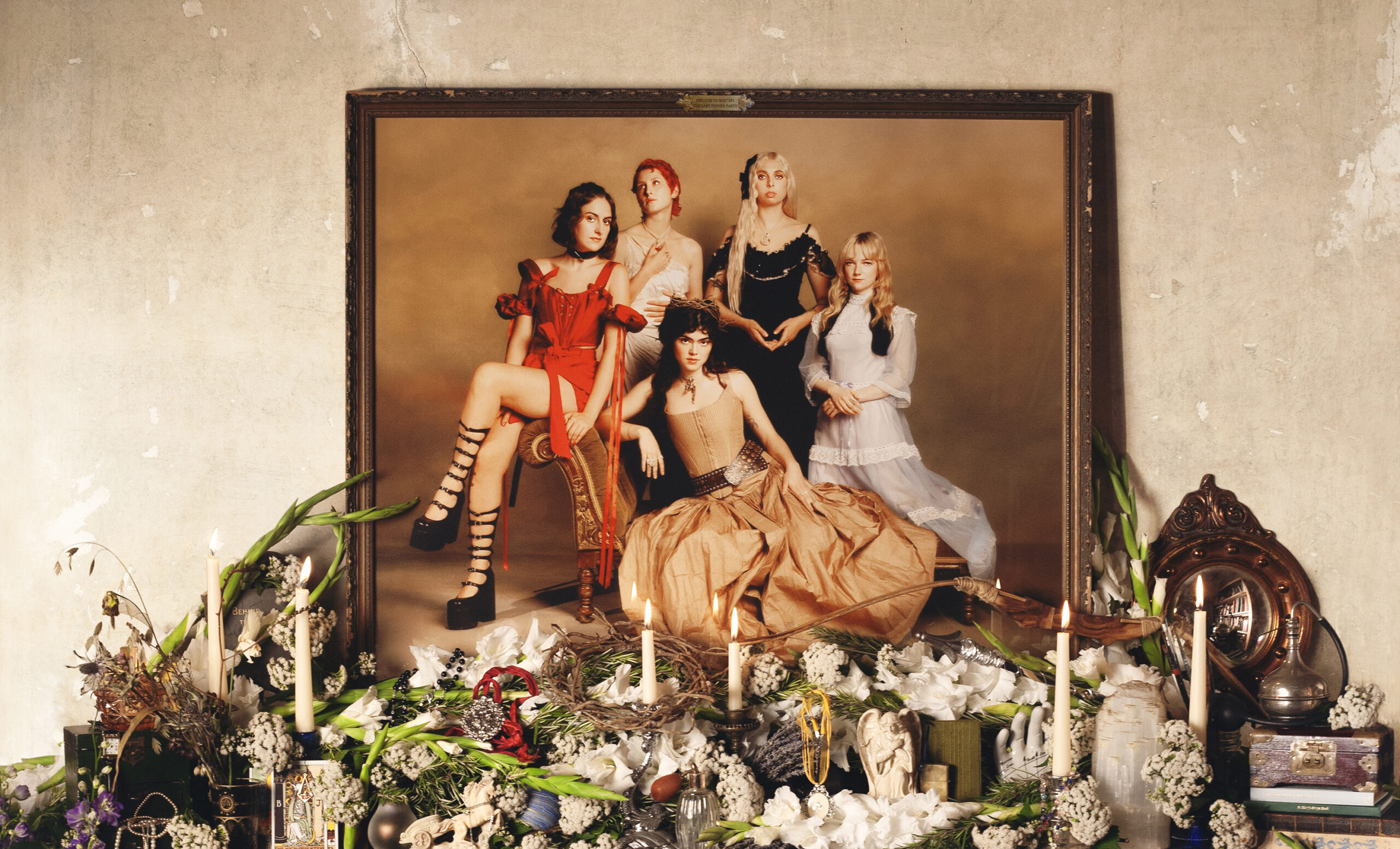Industry Plants – How the term damages the resurgence of female fronted rock bands like The Last Dinner Party

Image Credit: Cal McIntyre
Written by Eszter Vida, edited by Millie Cain
Industry plants: artists that music nerds love to hate and point out within seconds of hearing new bands that break through unexpectedly. Arguably, London-based indie rock band The Last Dinner Party became the centre of new music hype as well as a lot of unwarranted criticism for their unanticipated success, along with other bands like Manchester’s Picture Parlour and in the past, even Wet Leg. The key theme of these accusations? They’re somehow always women.
It’s no surprise why the average listener would accuse the music industry of wanting to take advantage of this gap in the market and creating what they would recognise as ornaments of progressiveness in the music industry. Female fronted bands barely scrape the line-up for traditional rock festivals and there’s no doubt always been a gender gap in the industry.
(Image Credit: Eszter Vida)
But I think it’s important to remain nuanced when approaching conversations on industry plants and consider the geographical and economic factors on whether a band makes it beyond a local status. It’s mutually agreed that since most record labels have always been based in London or getting your foot in the door would rely upon a complex network of connections or nepotism, a band like The Last Dinner Party may have been gifted the advantage of finding themselves in the music scene’s capital. Arguably, if you want to pass this judgement towards someone more suitable, there are surely other male indie rock bands with famous dads that wear shades and like to forefront themselves on social issues and equality; that is if the nepotism label sabotages your ability to simply enjoy music that much.
I managed to catch The Last Dinner Party at Live at Leeds this past October. What I saw was not a plastically manufactured line up of industry puppets that were jumping to sell you corporate messaging and to fill their own pockets, but rather a band with a sisterhood quality, incredible talent and clever aesthetically pleasing image. The band present themselves as some fantastical quintet, catering to the girls who want to live out the romance of a pastoral renaissance novel, in the backdrop of living in our confusing modern world. They are certainly not ornaments for anyone’s gaze, except for the audiences they have since captivated.
Lead singer Abigail floated around elegantly in her white Austen-esque dress, addressing the crowd like the host of a dinner party eponymously as she released guttural screams in ‘My Lady of Mercy’, among the presence of roaring guitars and booming synths. I personally sense a lot of influence from the likes of Siouxsie Sioux, Patti Smith and Stevie Nicks: all veteran trailblazing female figures. What defines their image should not be that they’re all 5 women-presenting musicians but that they are truly a group that work in harmony and greatness. In alignment of this, it was extraordinary to see them tone their set down by way of singing a choral chant and was empowering to experience live.
The Last Dinner Party have been formulating this image as early as 2021, judging from the beginning of their Instagram account. They themselves have come to defend their origins as 18-year-olds who met during freshers week and got signed, as any university band ever dreams. I was quite shocked to learn that back in 2022, they were even on the line up to play alongside Northwest local acts like Seb Lowe and Pixey on the smallest stage of my hometown’s festival Neighbourhood Weekender in Warrington before I had even learned of their existence. For female artists, constructing an identity to prove their relevance and the pressure to have outstanding marketing has somehow survived as this unkillable shadow since 1950s girl groups have been around to be recorded and exploited by greedy music bosses. I’d like to think that we are beyond the age of female passivity.
I’m relieved when bands like these women break into the mainstream. Whether you believe they are industry plants or marketing geniuses, one thing is true that the image of the band is beyond captivating. You shouldn’t leave their gig or finish enjoying their music by saying ‘I didn’t expect them to be THAT good’ or promote them later how ‘they ACTUALLY sounded decent’. Nails can be heard on distant chalkboards when I hear someone’s preconceived judgments; they are sadly not welcome into both band’s expanding musical worlds that should be treated with patience if you’re expecting some longevity. That’s the true renaissance of female acts in a male-dominated genre of rock.
